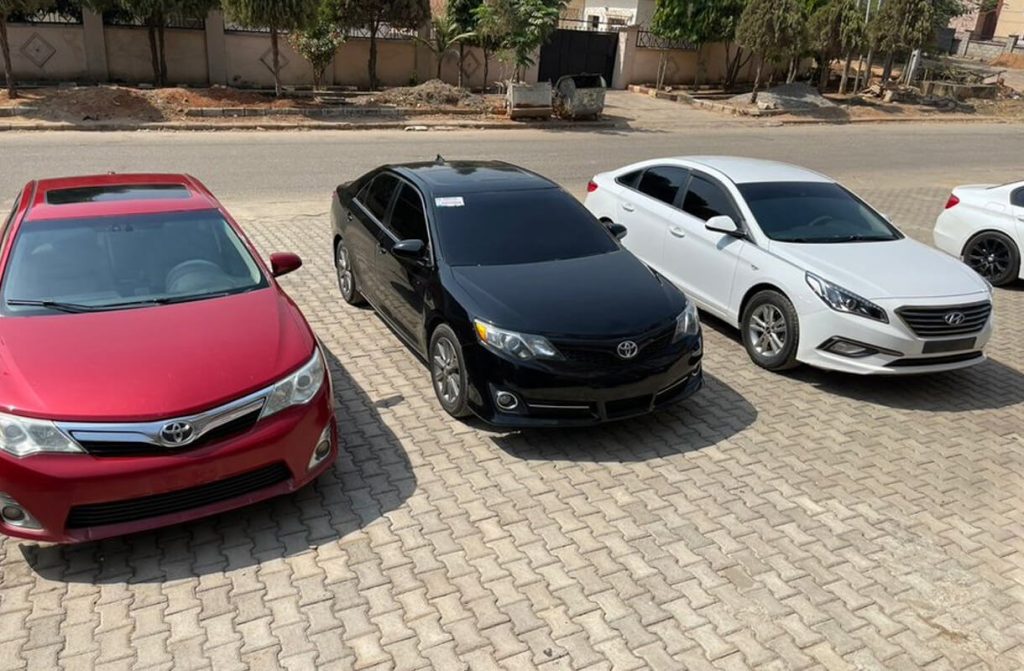After buying a house, buying a car may be one of the greatest expenditures you ever make. Therefore, car loans and other forms of financing might be a fantastic way to spread out the expense.
Table of Contents
Having a car loan is one of the ways you can finance your car with your salary or another source of income. Car loans or other means of financing help to lessen the burden of buying a car outright; what this means is that you pay an initial deposit and with that, you are allowed to pay monthly instalments over a period of time ranging from 6 months to 24 months. But how do you know how much you will probably pay? This is highly dependent on the lender, but we have compiled a few factors that will help you determine that yourself or if, perchance, your loan application would be approved.
The majority of drivers ought to be qualified for car loans. But there are key elements that will influence how much you can borrow. Your monthly income and expenses, as well as your credit score, are all included. Below, we go through these aspects in more detail:
How is your credit balance?
How much you can borrow for a car loan might be significantly influenced by your credit balance and how much you can pay back in interest and how you can do so. Your bank account statements and other financial factors are used to assess your financial management skills and the possibility that you will be able to make the required repayments on time.

Ultimately, it comes down to risk: how much of a danger would lending to you pose for the loan provider? Additionally, a lender will take your borrowing capacity into account when making this decision. If you have a chance of not have the required income to offset the loan, you may not be able to borrow as much.
Yet, it can be worthwhile to work on raising your credit before you apply for car financing. A solid credit rating may not only make you eligible for a larger loan but may also result in cheaper interest rates being given to you. It’s a smart idea to educate yourself on the aspects that affect your ability to apply for a loan. They consist of your credit application history, unpaid debt, and payment history.
Financial History
Your payment history will be one of the first things lenders look at when reviewing your credit report. Missing or making late payments towards things like loans and other forms of finance such as mortgages can have a negative influence on your ability to get a lender to approve your loan. This is why it’s crucial to manage your money well and try your hardest to at least make the required repayments.
A lack of payment history might also affect your credit score because lenders cannot assess your financial management and ability to make payments on time.
Outstanding Debt
Any debt you currently have outstanding will mean you have ongoing credit commitments, which will have to be factored into your budget. So bear in mind that if you have a lot of current debt, you may need to pay some of it off before you can apply for further loans.
You should additionally consider your income. You don’t want to be using too much of your time—the usual percentage to aim for is around 30%. That is, if your salary is N150,000, you should not be paying off loans for more than N30,000.
A monthly spending plan
When deciding whether to grant you a loan and how much you can borrow, lenders will consider your income as well as your monthly budget. As a result, they will inquire about your monthly income and ask for a breakdown of your outgoings. This will cover items like rent, urgent debts, groceries, and other necessities. Your other credit obligations will also be considered.
These costs can be tallied up and then deducted from your income to determine your disposable income. This is the monthly sum that can be set aside for luxury and unforeseen expenses. Your disposable income would also need to cover your car finance payment, leaving you with enough money to meet any unforeseen needs.
Loan payments are made each month.
The lender will next take into account the anticipated monthly payments for your car loan after calculating your current budget. For instance, your monthly payments might be about 40,000 if you borrowed N1,000,000 over two years. The lender must determine if such payments are manageable given your available income.
Of course, spreading out the instalments over a longer period of time is one approach to making smaller monthly payments.
Getting a car loan isn’t an easy process in any way, and determining how much you will pay is highly dependent on your income and the possibility of you paying back the interest, so in all things, you must have this at the back of your mind.
Have 1 million naira and above to Buy or Sell Cars In Nigeria? Check carlots.ng
All rights reserved. Reproduction, publication, broadcasting, rewriting, or redistribution of this material and other digital content on carmart.ng is strictly prohibited without prior express written permission from Carmart Nigeria - Contact: [email protected]







